Oral Diseases and Infant Oral Mutilation in the Population of Masai Mara
The first research project as a part of MMSDI has been carried out in Masai Mara in January‐February 2016
Within the period starting from January 28th to February 6th 2016, a group of seven professors, dentists and a biologist visited four primary and secondary schools in Mara North Conservancy, Kenya. The purpose was to carry out a research project among 300 school children. The focus of the study was the occurrence of tooth anomalies, infant oral mutilation and occlusal effects of it in addition to various periodontally-related aspects. The study comprised of an oral examination, a questionnaire part and collection of oral‐biological samples (dental plaque and saliva).
Since the Maasai Mara Science and Development Initiative (MMSDI) began in spring 2015 professor Dorte Haubek, Department of Dentistry, Aarhus University has been a part of the group of researchers involved in the formalization of the initiative. She participated in the Summit and workshops held in Narok and at Karen Blixen Camp in April 2015 which had the sole purpose of initiating the developmental research processes in Maasai Mara.
Professor Dorte Haubek is the principal investigator of the current research, and has initially had the idea and developed the first draft of the oral health‐related research project, with further input after gathering a team of researchers from the University of Aarhus, Denmark, University of Umeaa, Sweden, and the University of Nairobi around her.
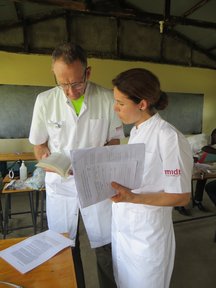
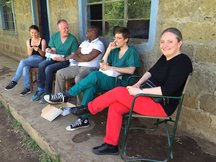
During her first visit to Kenya, while attending the MMSDI Summit in April 2015, she gave two lectures to the dental faculty at University of Nairobi and the Kenya Dental Association and got to know two Kenyan researchers, professor and specialist in Pediatric Dentistry Arthur Kemoli and specialist in Periodontology, Dr. Tonnie Mulli, both from University of Nairobi. Since April 2015, these two Kenyan researchers have been a part of the oral health‐related team of researchers.

Ethical clearance of the oral health‐related study was obtained after the assessment of the research project proposal by the Kenyan ethical committee (KNH‐UON ERC), paving the way to continue with the oral health‐related research activities. Furthermore, the research project was supported by the local chief, Nabala from Mara Rianda.
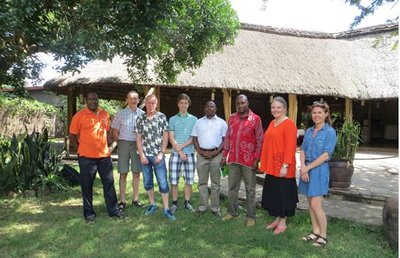
After the ethical approval of the study was obtained, a total of 284 school children, 14 to 16 years of age, were recruited into the study after obtaining a signed informed consent from the caregivers of the children, and signed assents from the children. Professor Arthur Kemoli and Dr. Tonnie Mulli, University of Nairobi, were involved in these parts of the field activities, in addition to the collection of data concerning oral hygiene habits and oral health‐related quality of life.
Prior to the oral examination being undertaken, the students were informed about the whole project again and then allowed to voluntarily sign the assent forms.
The oral examinations were carried out under field conditions at four schools and were conducted by professor and dentist Dorte Haubek, dental specialist in orthodontics Hans Gjørup and chief dentist Marie‐Louise Milvang Nørregaard, University of Aarhus and Aarhus University Hospital and in collaboration with dentist and ph.d.‐student Mark Lindholm from University of Umeaa, Sweden.
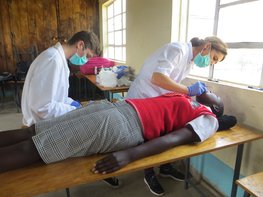
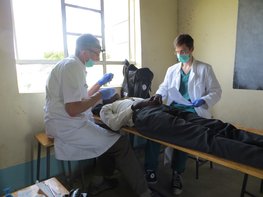
Dental plaque and saliva samples were collected from each participant by the clinical team and by biologist, Anders Johansson with the purpose of carrying out oral‐biological tests subsequently.

After the oral examinations, the students were given a toothbrush and toothpaste, kindly donated by Zendium/Unilever, and they were informed about their oral health status.
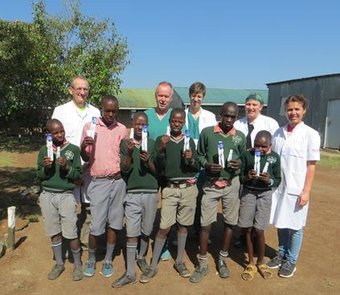
After finalization of all examinations planned at each school participating in the research project, a ‘baraza’ was held to educate the schools about the oral findings by researchers and how to achieve and maintain good oral health.
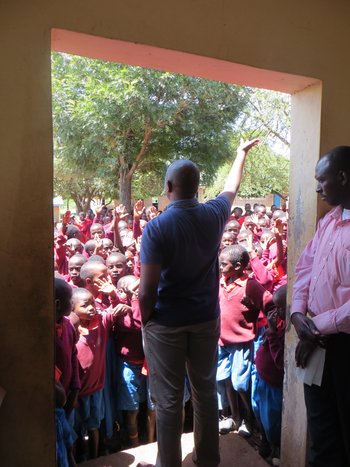
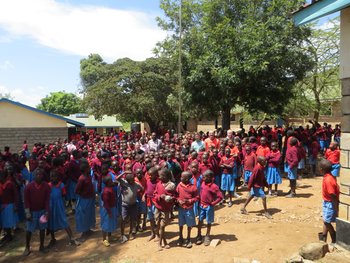
Treatment needs observed during examinations were recorded on a list and later provided to the respective schools to liaise with the children’s caregivers and the local NGOs who would assist in the management of the oral health issues of the affected children.
The collected data is now under further analyses, although it was quite clear after the oral examinations that infant oral mutilation (i.e., removal of tooth buds in the lower front teeth region) is still frequently occurring in Maasai Mara and dental fluorosis (too high level of fluoride intake) is a matter of concern.